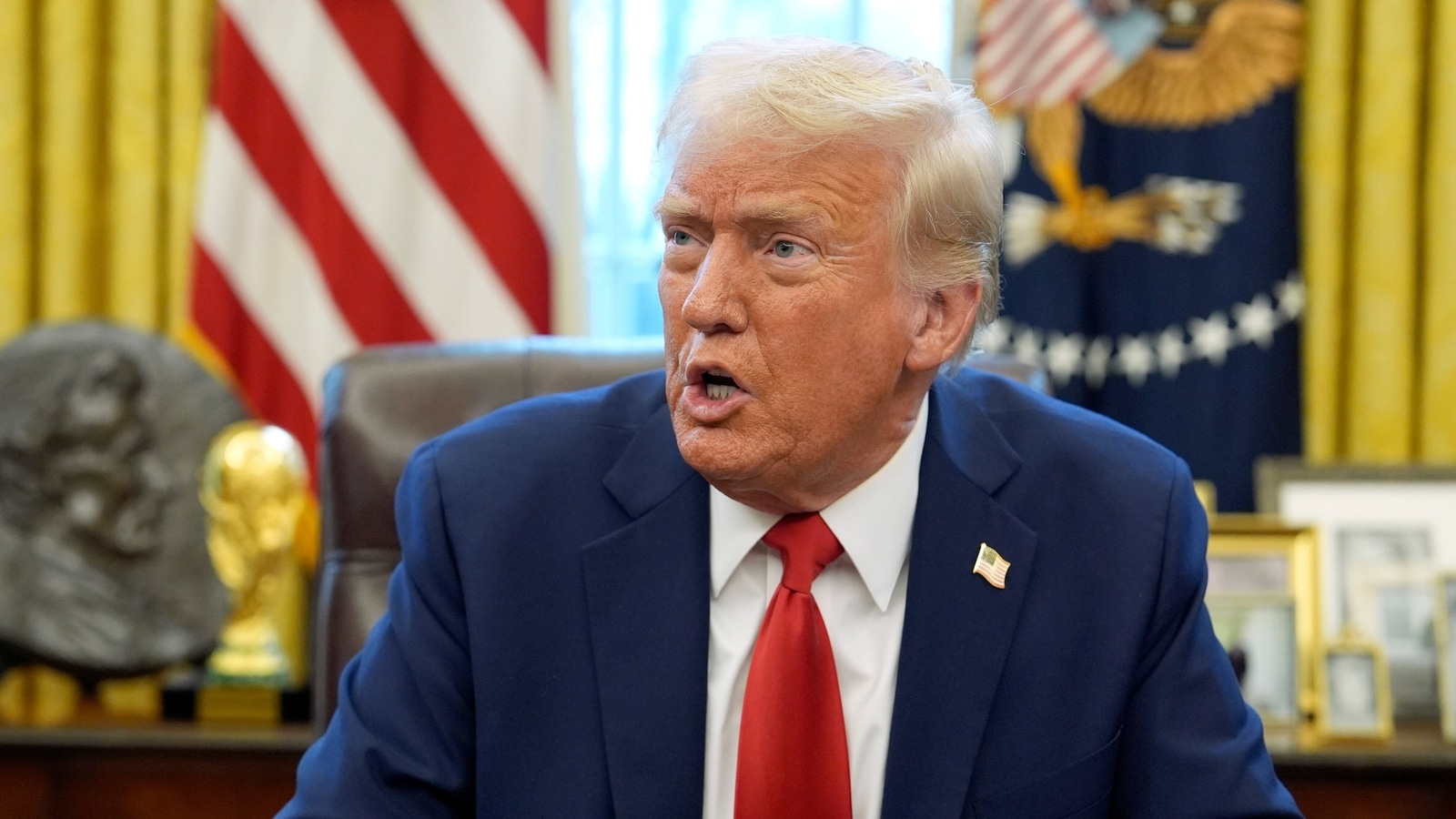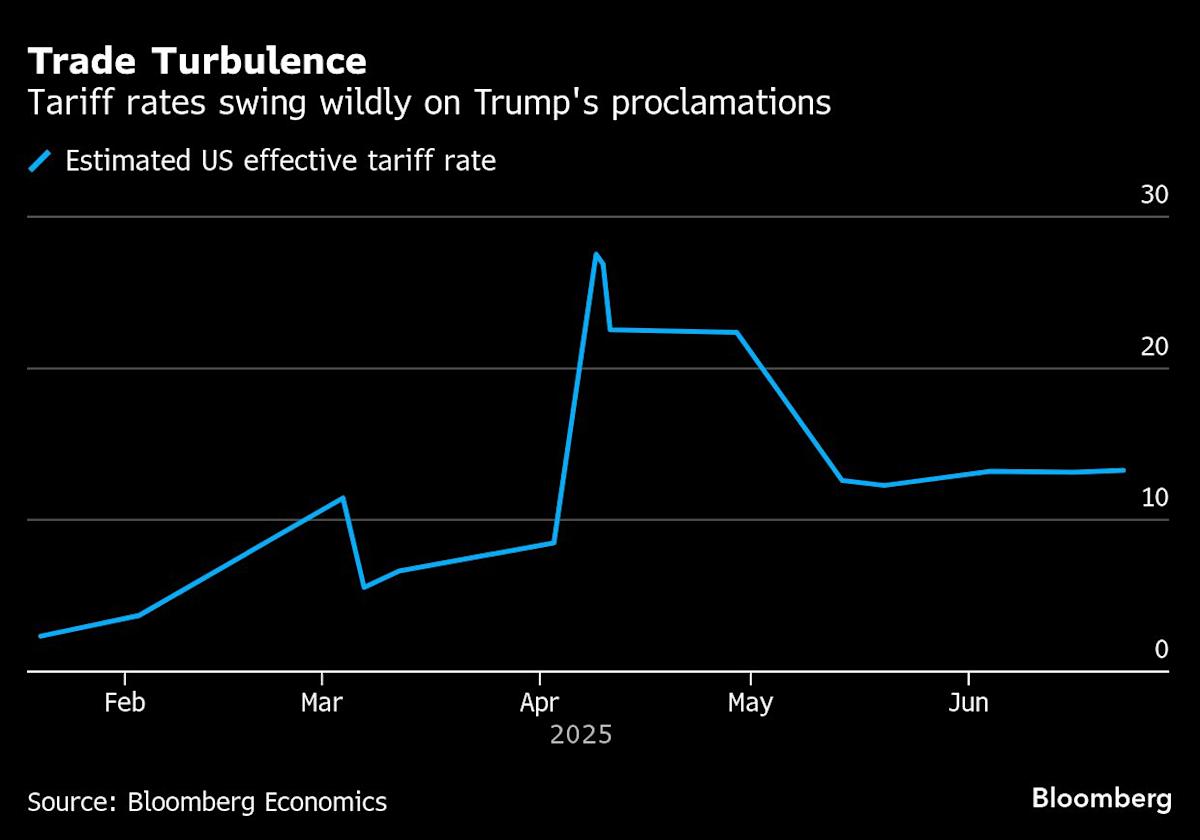President Donald Trump has imposed or threatened new tariffs on imports from Canada, Mexico, and China, fulfilling promises from his campaign.
While the move has caused disruptions in stock markets and supply chains, it has also tested relations with North American neighbours and China, the world’s second-largest economy.
Despite these challenges, Trump is claiming early successes, with Mexico and Canada agreeing to work more closely on border control.
Also read: Made in Mexico, made for USA: Cars under scanner after Donald Trump’s tariff threat
Trump is now admitting what many economists have long predicted, that his approach could result in higher prices and lower supplies across a roiled US market. This is in contrast to the 2024 campaign, when he claimed that his economic agenda would lower the cost of living for Americans.
Trump’s moves, the rebuttals from US trading partners, and the implications for American consumers are as follows:
The 3 largest US trading partners
In order to impose 10 percent levies on all imports from China and 25 percent on goods from Mexico and Canada, Trump first proclaimed an economic emergency. A 10 percent tax would be applied to all energy imported from Canada, including electricity, natural gas, and oil. The three biggest trading partners of the United States are the nations targeted. The levies on China were still slated to go into effect Tuesday.
However, Trump and the leaders of Canada and Mexico announced agreements on Monday to avert a possible 30-day trade war, with both countries agreeing to appease the American president by increasing their efforts to battle drug trafficking and strengthen border security. President Claudia Sheinbaum made an explicit pledge to send 10,000 men of the national guard to the border between the United States and Mexico.
Trump’s planned tariffs would apply to all US markets. Among them are Canadian timber and oil, as well as Chinese computer chips, plastics, and textiles. The cost of vegetables, apparel, alcohol, and car components made in Mexico may increase as a result of tariffs. There was no way to provide US importers an exception under Trump’s initial order.
Also read: China retaliates against Donald Trump, announces 15-25% tariffs on US imports
Underscoring the potential effects if permanent deals are not reached, Canada provides more than 4.3 million barrels of oil a day to the United States. The US tends to consume about 20 million barrels a day, according to the US Energy Information Administration. It has been producing domestically about 13.2 million barrels daily.
Levies are about immigration and drugs
The president frequently discussed US trade imbalances during his campaign and for decades before to entering politics. He criticised global trade agreements and lamented the constant exodus of manufacturing jobs from the United States to other nations. However, he has presented his most recent moves as leverage over drugs and immigration. Trump is accusing the three allies of failing to do more to halt the influx of fentanyl into American markets. He holds Canada and Mexico partially responsible for the influx of migrants entering the United States.
“It is my duty as president to ensure the safety of all,” Trump said on social media after his initial weekend announcement.
Canada, China and Mexico’s swift reactions
As part of his directive, Trump threatened to raise duties if US trading partners responded with their own. A prompt reaction was not impeded by that threat.
Sheinbaum had authorised retaliatory duties prior to their Monday meeting with Trump, and Canadian Prime Minister Justin Trudeau had promised to impose equal 25% tariffs on up to $155 billion in US goods.
Trudeau had essentially called for a boycott of American goods when he encouraged Canadians to “choose Canadian products” when they went shopping. Locally, some Canadian province premiers said that they will be taking American alcohol brands off the shelves of government stores.
China’s Ministry of Commerce declared on Tuesday that it will impose counter-tariffs on a number of US goods, including a 10% tariff on crude oil, agricultural equipment, and large-displacement automobiles, as well as a 15 percent duty on coal and liquefied natural gas products.
Also read: White House official says Trump invited PM Modi to US | 10 points on proposed trip
China’s State Administration for Market Regulation also said on Tuesday that it is looking into Google for possible antitrust violations.
The ministry had previously stated that it will protest to the World Trade Organisation over the “wrongful practices of the US.” However, the WTO appeals process has been hampered in recent years due to the blocking of judge selections by many US administrations.
A WTO spokesperson said Monday that no member countries had formally sought to take any action against the U.S over the tariff announcements.
Meanwhile, the short-term detente between Trump and neighboring counterparts leaders may not hold.
Consumers witness effects
These figures were calculated with the assumption that Canada and Mexico would be subject to tariffs.
Even goods labelled as “Made in the USA” are affected. Occasionally, the label just indicates that a product is manufactured or otherwise completed at a US facility, even when it still contains components, raw materials, or packaging from other countries.
Additionally, as Trump frequently stated throughout the campaign, consumer price is also influenced by energy costs, which in turn affect supply chain transportation costs. Tariffs at the northern US border would raise petrol costs given Canada’s portion of the US energy supply, particularly in the Mid west where a large amount of Canadian crude oil is processed.
Trump negotiates with foreign leaders
Trump called his Monday morning talk with Sheinbaum a “very friendly conversation” — continuing his framing of the overall issue as one of negotiations and leverage. Trudeau said Monday afternoon that Canada and the US would “work together.”
It is very possible that the majority of Trump’s tariffs are either temporary or never implement. However, the levy threat alone, which the president has stated would not abate during his administration, has the potential to agitate global markets and irritate companies across the global supply chain.
Business executives often want less government regulation and lower taxation. However, predictability—having as few unknown factors as possible to better estimate their revenues and expenses—is what they frequently value most.
Also read: Donald Trump pauses tariff: How global markets reacted to US president’s move
Monday’s trading saw significant volatility in the US stock markets. Businesses all around the United States have been preparing for a difficult time. Additionally, Canadian rank-and-file individuals, corporate executives, and government officials have voiced a sense of betrayal that may continue have an impact on US-Canada trade profits even after a 30-day delay.
Trump has changed his tune on the consequences for consumers
Regarding the American economy, candidate Trump made broad, unrealistic claims.
Within a year of assuming office, he pledged to cut power expenses in half and slash grocery prices “immediately”—sometimes he claimed “on Day 1″—among other things. He promised to “quickly” address the lack of available housing, growing rents, and the building of new homes. He urged Americans who were angry about rising living expenses to vote for him, consistently denouncing the Biden administration as a failure due to inflation.
Vice President JD Vance, in an interview on Fox News Channel’s “Sunday Morning Futures,” maintained that Trump would deliver “more take-home pay” for US workers.
Now, Trump is backing off such claims.
“Will there be some pain? Yes, maybe (and maybe not),” Trump wrote Sunday morning on social media. “But we will make America great again, and it will all be worth the price that must be paid.”
With AP inputs


